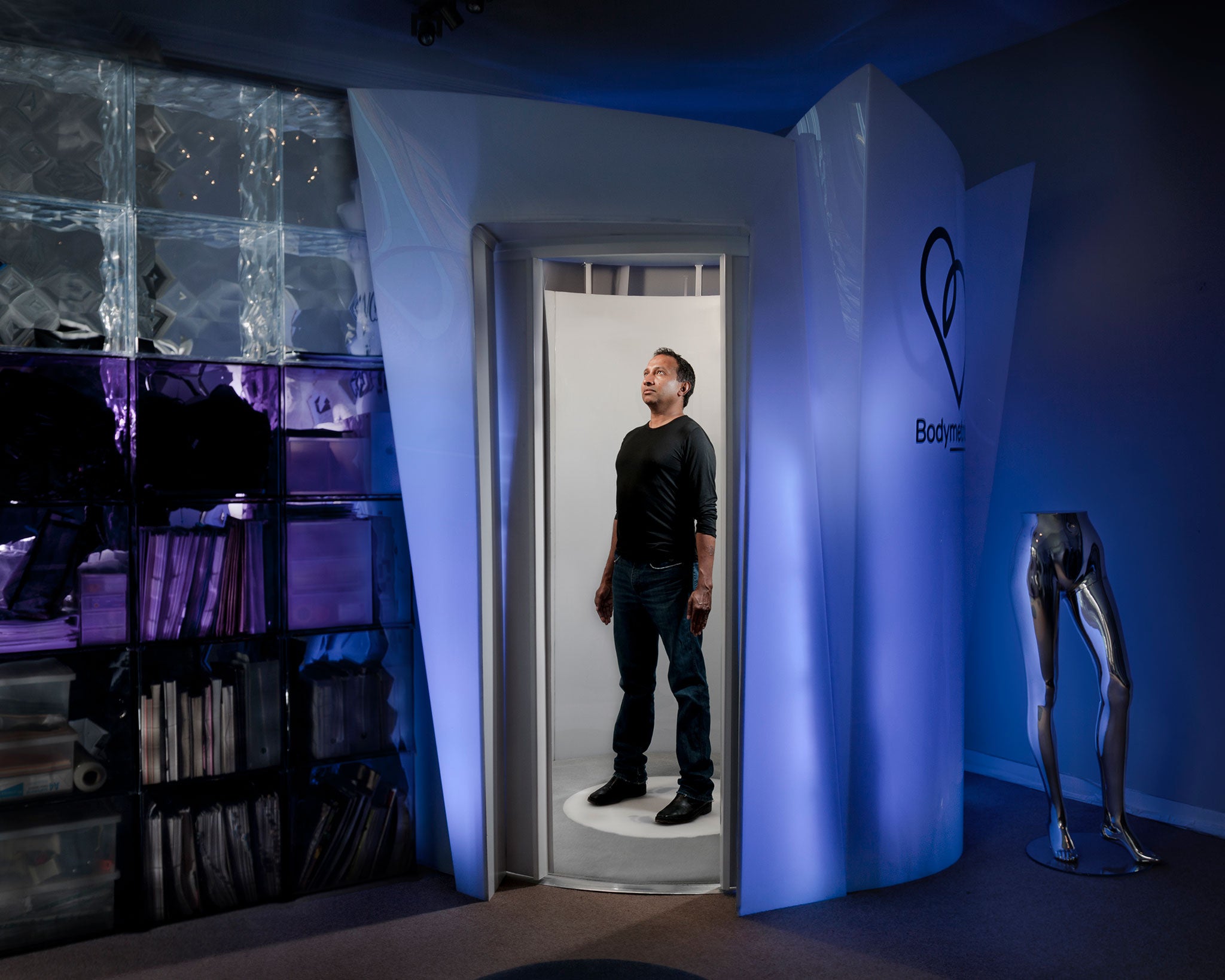Meet the Quantified Selfers: From heart rates to happiness, there is little this fast-growing, self-tracking community won't monitor
From the cyclist who maps her rides to the dieter who 3D-scans his belly, 'Quantified Selfers' monitor, mark down and mull over their personal data (often for hours) - and now they’ve got all the technological help they need to feed their obsessions…

Take one smartphone, augment with several apps and attach a wearable sensor or two. Next, add a thirst for personal-data collection – and, frequently, a willingness to share it – and you're ready to join the fast-growing self-tracking community, known to its enthusiasts as the Quantified Self movement.
Many of us track some element of our lives; monitoring and recording calorie intake, for instance – and perhaps we use an app to do so. But what distinguishes the occasional user from the obsessive is the quantity and variety of metrics monitored – coupled with a belief that the data generated by their everyday activities can be used to adjust their behaviour, and transform aspects of their lives.
The broad idea of allying technology with self-improvement originated in California (where else?), in the middle of the 2000s. And thanks to the advent of tiny web-connected sensors and sophisticated smartphone apps to control them, self-tracking – or for some, self-obsessing – has never been easier. The movement has grown globally, its adherents a mix of fitness fanatics, self-help gurus, geeks, early adopters and people with various health issues.
The portrait photographer Travis Hodges followed a small sample of this community for his photography project "The Quantified Self", documenting the experiences of 15 data devotees. "I'm interested in how technology alters society," he explains. "When I read about the self-tracking movement, I was fascinated by its idea of self-knowledge through numbers. I wanted to find out what people tracked, and why."
The breadth of areas people track impressed Hodges, from mood changes, personal finances, and the number of steps walked or miles cycled, to the quality of sleep. "Some people were tracking purely out of interest, others to enjoy the competitive social element, some to better control a health condition," he says.
Many of his portraits show individuals in mid thought, as though contemplating their data-driven selves. "That style started with Alex," explains Hodges. Alex, a keen runner, was diagnosed with type 1 diabetes last year. Injecting insulin in combination with taking strenuous exercise can cause a fatal plummeting of blood-sugar levels; but uploading data to his phone enables him to safely compete in ultra-marathons and mountaineering events.
Adriana tracks her mood and happiness levels via a Cambridge University research app. Cyclist Lindsey tracks every ride, pairing a Garmin bike computer with the phone app Strava to monitor speed, elevation and heart rate, and competes with other users.
But is such self-introspection healthy? "There is a danger of putting too much emphasis on it all – and becoming neurotic about your data," acknowledges Hodges. "You might learn something about yourself you'd rather not know."
There are limitations, too, to the current technologies: the tracking landscape is fragmented, with many apps and devices incompatible with one another or often narrowly focused: if you're looking for a holistic approach to cycling, for example, Strava can tells you how fast you rode compared with your peers, but you'll need another app to tell you what to eat. There are also concerns about potential uses of this torrent of personal data: imagine insurance companies demanding to see your activity logs.
Yet knowing your numbers can be a powerful incentive for change, as when the NHS recommends you take 10,000 steps a day but your wearable device logs only 3,000… The maxim "know thyself" has never been easier to follow. Whether it's desirable, on the other hand, is still up for debate.
For more portraits from the series: travishodges.co.uk/thequantifiedself
Join our commenting forum
Join thought-provoking conversations, follow other Independent readers and see their replies
Comments
Bookmark popover
Removed from bookmarks